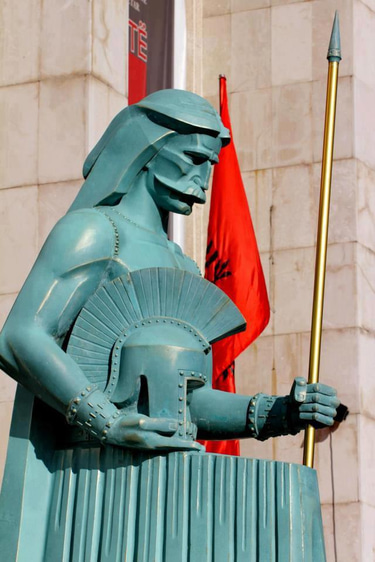Website under development
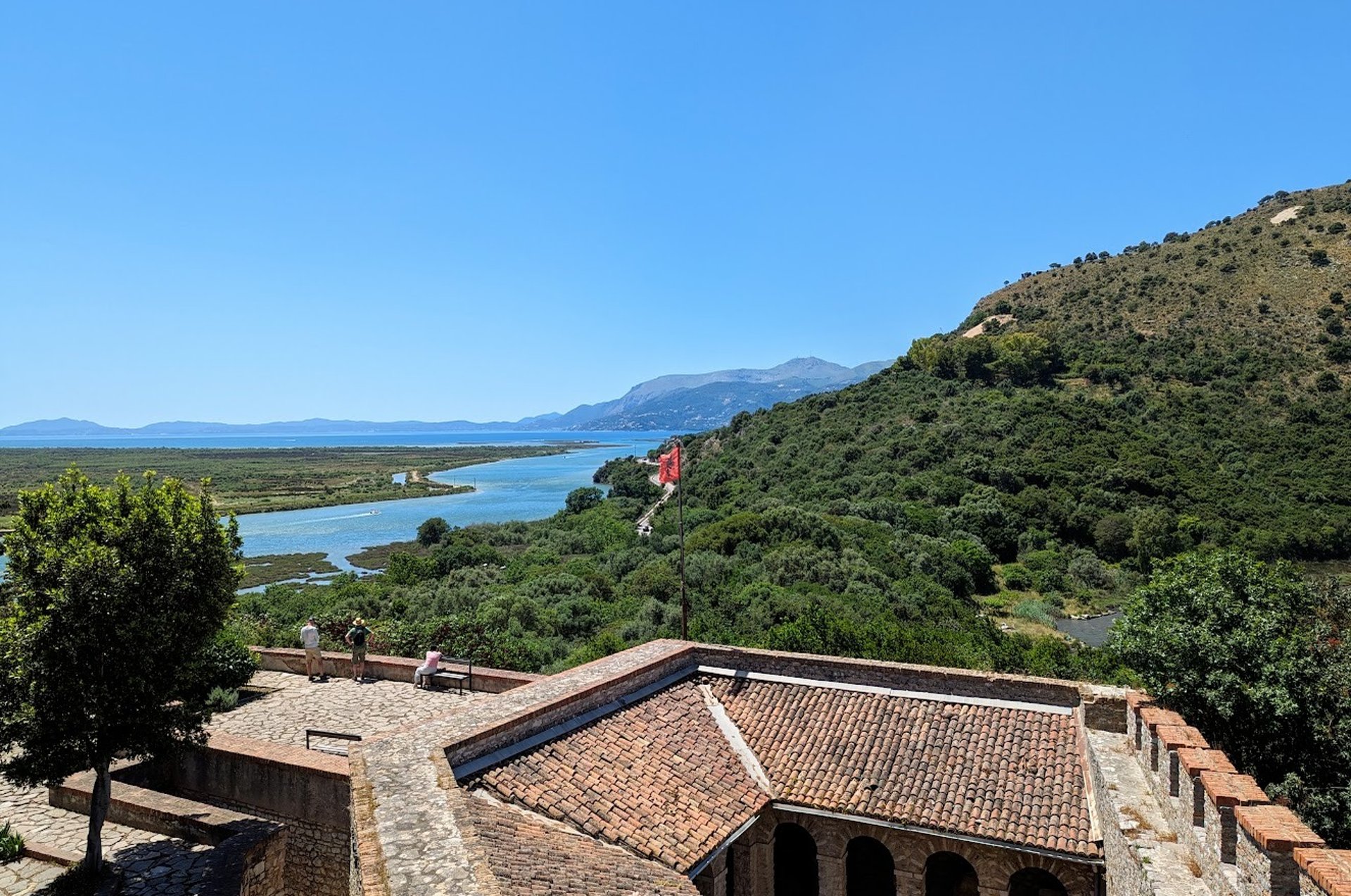
Explore Albanian History
Curiosities, documents, audiobooks and historical videos in three languages.
Reliable and informative
★★★★★

The Mystery of the Albanian Ethnicity
In the scenario of European populations, where every population now has a fairly defined history and origin, the history of the Albanian ethnic group, which originates in the most ancient times of the whole old continent and yet does not find a unanimous definition of its historical path, remains mysterious and undefined.
Follow me then on a brief historical walk, without academic pretensions, although based on studies conducted so far on the subject.
The Albanian ethnic group historically extends across the Balkan Peninsula, not only in the Republic of Albania but also in the Albanian ethnic minorities of neighboring countries: Greece, North Macedonia, Serbia, Montenegro, Italy and of course, in Kosovo.
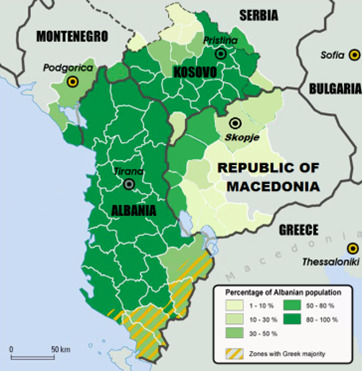

Subjected to foreign occupations for most of its history, the Albanian ethnic group continues to retain characteristics peculiar only to its individuals. But, then, what is the origin of the Albanian ethnic group?
In historical sources there have been many voices, various hypotheses: indigenous population or those who arrived later? Descendants of the Illyrians, Greeks, Romans, or Germanic and Slavic barbarians? Among the various purely historical hypotheses and the efforts sometimes also with politicized purposes, perhaps the most precise way to shed some light on the issue before delving into the interpretation of the sources and archaeological findings is the tool of genetic sciences, for the study of DNA, which makes up for the scarcity of sufficient historical sources from the ancient archaic and classical periods on the subject.
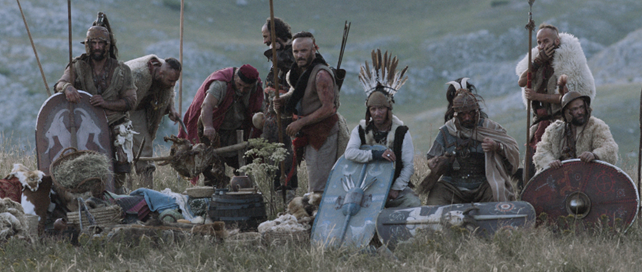

STRONG RELATIONSHIP WITH THE ILLYRIAN POPULATION – Oxford says so!
According to a study published in 2023 by researchers at the University of Oxford, many fluctuations in genetic origins can be seen in the genetic data of the modern Albanian population over a period of 8,000 years. By comparing the modern Albanian genome with ancient and medieval haplogroups, it is found that Albanians probably originate from a western Paleo-Balkan population that survived over the centuries and experienced a sudden growth in the period between the 5th and 8th centuries AD.
The study highlights how, unlike other Balkan populations, medieval Albanian samples (northern and southern) show that the contribution of the surrounding Slavic populations was minimal or zero.
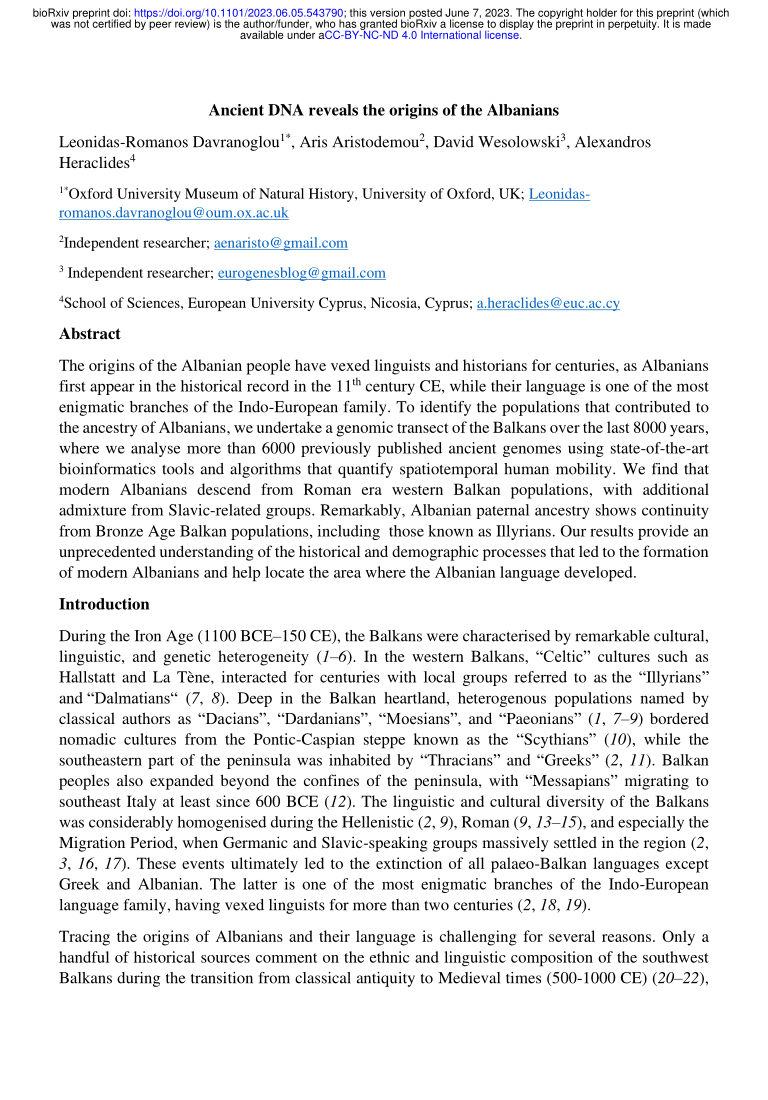

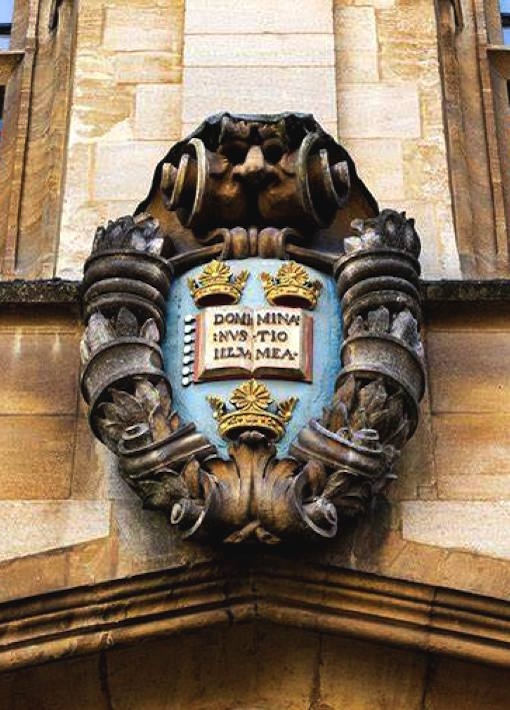

Of course, for anyone who was rightly perplexed by such a statement, it is not reasonable to think that over the centuries the Albanian population (like any other) has remained protected from further mixing with other populations, but in statistical terms the study shows that there is a value of 80% of the inheritance of the paternal lineage that corresponds to a Paleo-Balkan population (i.e. prior to the great migrations) that is assumed to coincide with the Illyrian populations, historically placed in the Western Balkan territory in the period 2100 – 1000 BC.
ALBANIANS ARE NOT DESCENDANTS OF THE ILLYRIANS
In the various studies on the obscure forgotten origins of the Albanians, a previous study, published in 1996 by Cavalli – Sforza, concludes instead that they are not descendants of the Illyrians at all. According to Cavalli-Sforza in fact, the Albanians would actually be heirs of a proto-Illyrian population already present in the Balkan region even before the arrival of the Illyrians (with the other Indo-European populations). According to this point of view, the proto-Albanian population was an autochthonous population from before the Bronze Age, which subsequently mixed with the Illyrians who arrived later with whom they spontaneously merged on an ethnic-anthropological level.
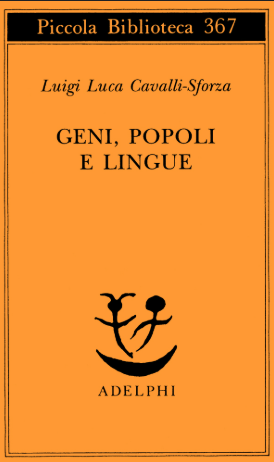

CONCLUSION
Whichever way you look at it, scientific data helps us confirm that the Albanian genome characterizes one of the most ancient populations not only in the Balkans but in all of Europe. Thus, any hypothesis that Albanians could actually be descendants of populations that migrated to the Balkan areas in later periods is definitively refuted.
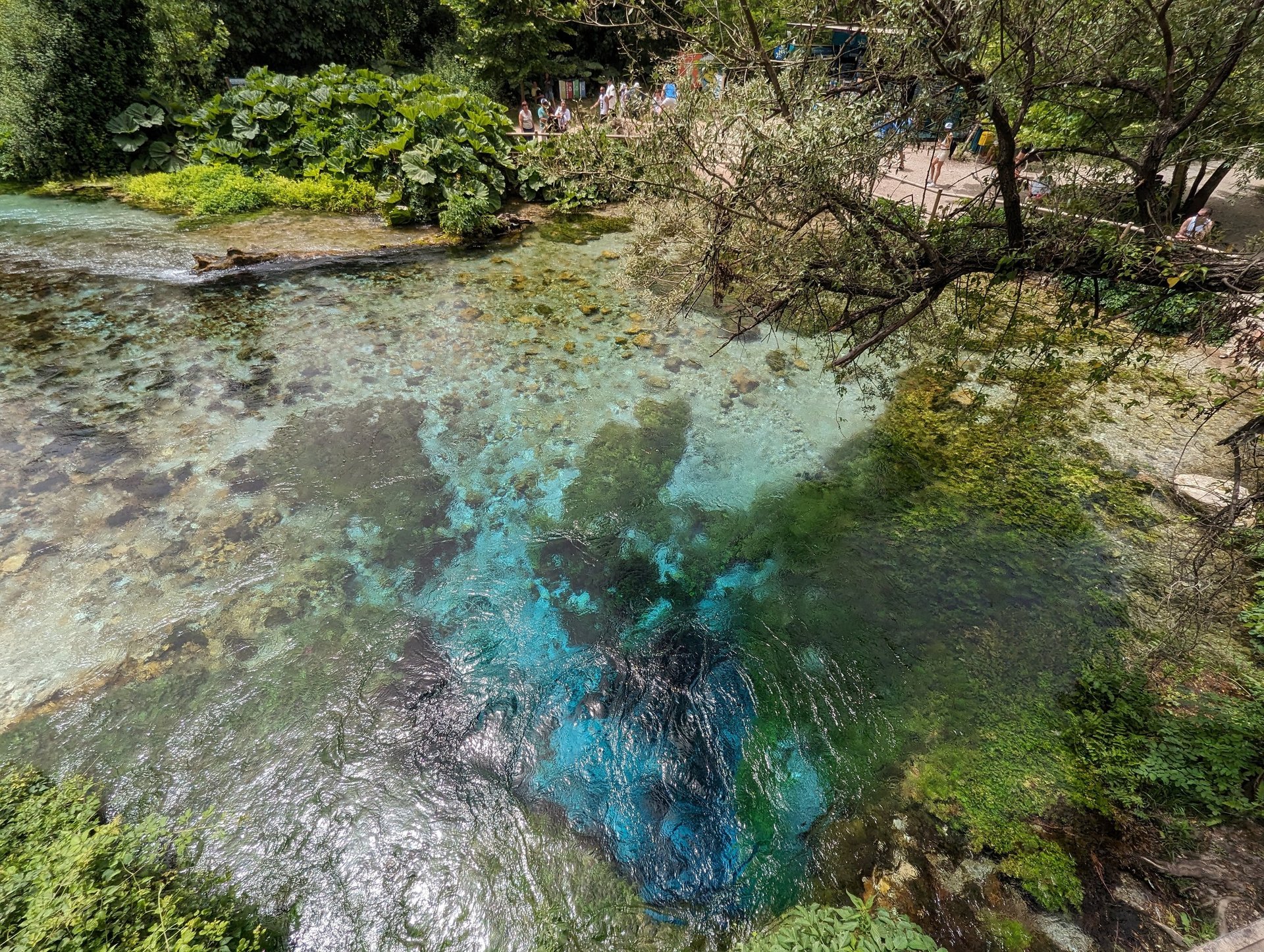
Contact us for more information
We are here to answer your questions about Albanian history. Contact us for more details about our content and services.
